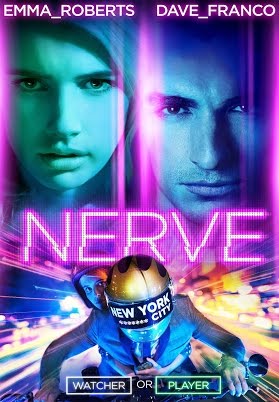This is a story of informers and betrayal. Set in the Colombia of 1991, the narrative goes  back to the Second World War and Colombia’s role as a place of refuge for Europeans of every political hue: German Jewish escapees from Nazi Europe as well as Nazi sympathisers. When the United States joined the Allied side after Pearl Harbour in 1941 they put increasing pressure on the Colombian government to round up their resident Germans, which they did by means of a notorious blacklist. This is the story of how a particular family were affected by this list and the act of betrayal which put them there. But the novel also explores informing and betrayal in a wider sense: what constitutes informing, the motives behind our betrayals and their consequences.
back to the Second World War and Colombia’s role as a place of refuge for Europeans of every political hue: German Jewish escapees from Nazi Europe as well as Nazi sympathisers. When the United States joined the Allied side after Pearl Harbour in 1941 they put increasing pressure on the Colombian government to round up their resident Germans, which they did by means of a notorious blacklist. This is the story of how a particular family were affected by this list and the act of betrayal which put them there. But the novel also explores informing and betrayal in a wider sense: what constitutes informing, the motives behind our betrayals and their consequences.
The novel begins with the narrator, Gabriel, visiting his 67 year old father in his Bogotá apartment after a period of estrangement. His father, Gabriel Santoro, is a lawyer well known for his seminars on Judicial Oratory in the Supreme Court. We find out that the estrangement is connected with the book his son wrote, A Life in Exile, about their family friend, Sara Guterman, leaving Germany with her family and settling in Colombia, but are told little more at this point. During the visit the narrator’s father tells him that he has a blocked artery and needs urgent medical treatment or he may die. He goes in for treatment, survives the operation and recovers at home, cared for by the narrator, their friend, Sara, and the physiotherapist Angelina.
The intimate tone of this introduction draws us into the characters and their relationships:we see his father’s flat through Gabriel’s eyes, the yellow drops of urine on the toilet seat and floor, the Alka- Seltzer and rusty shaving brush in the drawer. The aftermath of the operation, the physical invasion of the body by tubes and catheters continues this picture of fragility and vulnerability, so that when Gabriel Santoro recovers we can feel his enormous sense of relief and gratitude that he has been granted a second life- and the theme of reinventing oneself and second lives recurs in different and interesting ways later in the novel. So reinvigorated is Gabriel that he starts an affair with Angelina, the physiotherapist, and they go off to Medellín for a short break together.
The narrative then switches focus to the interviews with Sara Guterman which formed the basis for the narrator’s book, A Life in Exile. We learn about the family’s difficult journey from Emmerich in Germany and their eventual settling in Duitama where her father, Peter Guterman, opens a hotel, the Hotel Nueva Europa. This hotel becomes a sort of gathering place for Europeans and Colombians alike, a melting pot where the wishes of the management- bitte, leave your politics at reception– are respected, at least at first. And a frequent visitor to the hotel during the 30s is the young Gabriel Santoro, a law student in Bogotá who makes a habit of spending his weekends down there and befriends the other residents, in particular Enrique Deresser. As the US tightens its hold on Colombian politics and insists on the compilation of the lists, Enrique’s father, Konrad, ends up on the list and it is through his story that we see the devastation this causes: his assets are frozen, his business goes bust, his marriage breaks down and he loses everything. It is clear that while some listed people were paid up Nazi sympathisers- we meet one such in the novel- many others are innocent or harmless and end up there there as a result of someone informing, an act of betrayal.
The narrator learns from Sara that his father was implicated in the betrayal of Konrad Deresser and some time later goes to Medellín to meet with Enrique Deresser. He finds out more about the consequences of the betrayal for the next generation- and also, chillingly, for his own father.
The narrative is brilliantly plotted and well controlled : we are informed partially and in stages about the events it describes. We are given sufficient background historical detail but it is Gabriel Vasquez’s powers of characterisation and storytelling which flesh out, deepen and bring home to us the impact of the historical events: the rifts between father and son caused by language and cultural difference in the Deresser family, the loosening of the power of religious symbols in the life of Sara, issues explored in all their complexity and subtlety. And as events unfold it is suggested that informing and betrayal are not restricted to Gabriel Santoro giving away his friend: isn’t Angelina’s appearance on a TV chat show exposing details of her relationship with Gabriel a form of betrayal? And the furtive copying of a letter without permission by the journalist narrator at the end feels like a betrayal not only of Enrique but of us the readers!
And is this propensity for betrayal something particularly Colombian? After all, the narrator learns of his father’s disapproval of his book through a ‘chain of breaches of confidence, which in Colombia is so efficient when it comes to damaging someone‘. Certainly the repercussions of the betrayal- a shocking moment of violence in the book- are echoed in the larger scale violence at Centro 93 and Los Elefantes, killings which happened during La Violencia, the years of violence, also referred to in the book. Whether we choose to read the act of betrayal strictly within the Colombian context or as a more generalised human tendency, this novel explores the topic with consummate skill. In a clear and pitch perfect translation by Anne McLean, the novel is a compelling and thought provoking tour de force by the brilliant Juan Gabriel Vásquez and an essential read for anyone interested in contemporary literature coming out of South America.
Advertisements Share this:






